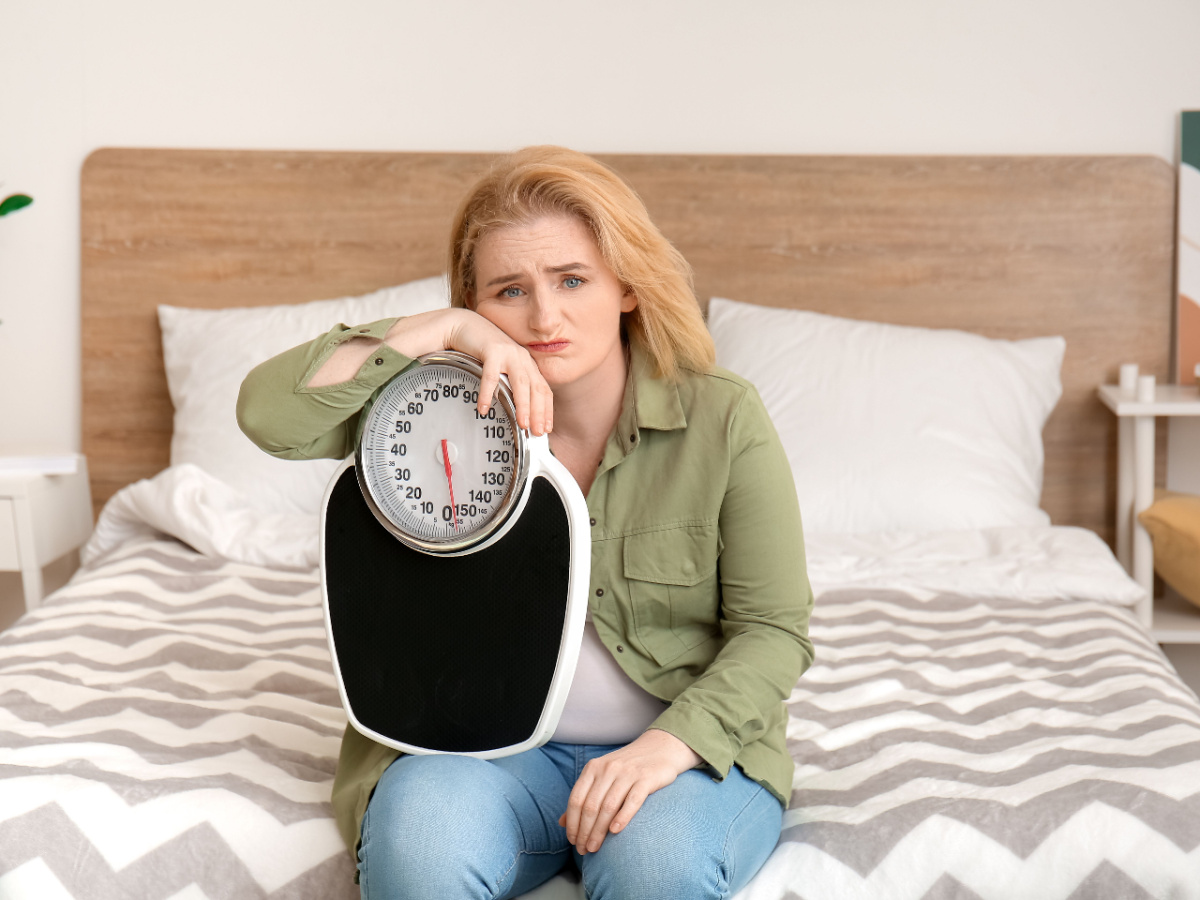Table of Contents
Sadness and anger are two of the most common reasons you may be overeating, but neither will be suppressed by food.
We recommend keeping a journey to highlight valuable trends and insights into what may be causing these binge occasions. As the saying goes, what is measured can be managed, and seeing the data in front of you in black and white will help you cook up effective strategies to handle those underlying emotions.
We are all emotional beings, and no matter how educated you are about healthy eating, if you can’t recognise and control when your emotions are influencing your eating decisions, you’ll never be successful at losing and keeping off the weight.
But it can be done. Emotional eating doesn’t have to be a fact of life that you must simply endure. With an understanding of the emotional eating cycle, and a few techniques to hand, you can end emotional eating for good.
What is emotional eating?
Eating isn’t always about answering the body’s call for fuel. While satisfying the physical need for food is certainly the main purpose of hunger, the body can demand food for other reasons. For some, food will be a reward for certain behaviours, while others will view food as a coping mechanism to help deal with stress or negative events. This is known as emotional eating, or hedonic hunger.
Rather than top up the body with the energy it has expended throughout the day, emotional eating is an emotional salve. It serves to make us feel good, particularly when times are tough, but it often ends up doing precisely the opposite. Emotional eating may treat the symptom, but it will never cure the root emotional problem. To make matters worse, emotional eating can cause more negative feelings, due to guilt towards overeating, or disapproval of gaining weight. This can fuel additional emotional eating, creating the emotional eating cycle. For better health, both in body and mind, this cycle must be broken.
Also Read: 6 Reasons To Lose 3 Stone
Physical and emotional hunger
The differences between physical and emotional, or hedonic, hunger is at the root of the emotional eating cycle. To break this cycle, it is vital to understand these differences, in order to properly respond when hunger kicks in.
There are several core differences between physical hunger and emotional hunger. Knowing how emotional hunger will make you feel, and what you might crave to satisfy it, can help you overcome the desire to eat and break the cycle of emotional eating. Before you reach for the biscuit tin after a hard day at work, take a moment to consider the following.
Sudden onset of hunger
One of the surest ways to identify emotional hunger is the speed with which it strikes. Emotional hunger will be immediate, taking the form of an urgent need that can’t wait. Physical hunger, on the other hand, will slowly creep up on you. Unless you’re starving, physical hunger will only be a small pang, which will steadily grow as your body’s need for food becomes more pressing. Given the urgency of emotional hunger, it can be difficult to resist.
Emotional hunger overrides fullness
The urgency of emotional hunger is coupled with overriding the body’s sense of fullness. Emotional eaters will experience strong desires for food essentially out of the blue. Because of this, and the sense of urgency that comes with emotional eating, it can be easy to chomp through an entire packet of crisps or tub of ice cream with little thought. Physical hunger is much different, as it can be satisfied with an appropriate intake of food and won’t demand more than necessary.
Only specific foods will do
When we experience physical hunger, most foods will seem appealing, even if it isn’t exactly our favourite meal. Emotional hunger, on the other hand, is quite picky. It wants us to only eat foods that make us feel good, which tends to be junk food packed with sugars, salts, and fats. This can quickly lead to a few extra pounds here and there, which often serves to feed the emotional eating cycle.
How does the emotional eating cycle work?
We’ve mentioned the emotional eating cycle a few times now, but what exactly is it? Well, it’s exactly as it sounds. It starts with a negative event occurring in an emotional eater’s life, which dredges up negative emotions. This can be anything from anger to despondency, and anything in between. To cope, they will turn to food for emotional support. This often leads to overeating, which in turn causes bad emotions in the form of guilt or shame. These emotions themselves can lead to emotional eating, or cause a poor frame of mind that makes it harder to cope with negative emotions in the future. Naturally, this can be a vicious cycle, one that lasts a lifetime if not properly addressed. The question is, how can an emotional eater break the cycle and beat emotional eating once and for all?
How you can beat emotional eating
Now you know how to identify emotional hunger and physical hunger, the next step is to break the emotional eating cycle. Before you get started, it’s crucial that you know this is a marathon, not a sprint. While some may find throwing themselves at the problem helpful, others may burn out or become discouraged. This can lead to more negative feelings, which serves to reinforce the emotional eating cycle, not break it. Taking a slower approach to ensure steady progress and achieving your goals can be better in the long term. You know your limits, so make sure to work within them. If you aren’t sure where to start, think about some of the following points and try to make them a habit, especially once the cravings creep in.
Find out what causes your emotional hunger
The first step to breaking the emotional eating cycle is to find out what causes you to turn to food for support. This will be different for everyone, and negative emotions aren’t always at the root. Some emotional eaters will use food as a reward mechanism, rather than a coping mechanism. While we’re all entitled to a couple of chocolate biscuits here and there, relying on food as a reward can be just as harmful as for support.
Food can help us deal with almost any emotion. The trick is to find out which ones we can handle alone, and which cause us to crave our comfort foods. The next time you experience emotional or hedonic hunger, consider whether any of the following is the cause:
- Stress – Stress is one of the leading emotions behind emotional eating. It puts intense pressure on the mind, but also on the body. Stress causes an increase in the production of cortisol, which is widely known as the stress hormone. While cortisol has a range of effects on the body, the important effect in this context is causing a craving for sweet and salty foods. These kinds of foods are a great source of energy, which the body will need during periods of chronic stress.
- Silencing negative feelings – Food can be an effective way to “silence” negative emotions. Eating can stop the nagging anxiety that comes with an upcoming exam, the anger towards your boss for ignoring your hard work, or the shame that follows overeating. The pleasure of eating makes these emotions easier to handle.
- Social pressure – While emotional eating often comes from within, it can be caused by external influences, too. Social gatherings can subtly cause us to eat more than we should, simply because we see everyone else doing the same. Sometimes, this subtle pressure can be overt, if around people that encourage eating more than necessary.
Resist the call of cravings
Although it’s certainly easier said than done, resisting your cravings the next time they come is a must. This isn’t the solution itself, but rather a way to buy you time to figure out something that works. If you find yourself struggling with the temptation to eat, sit back and take a few minutes to think. Consider why you want to eat, what emotions could be the driving force, and later, what you can do instead. The point here isn’t to completely avoid eating, but to develop a strong understanding of why you want to eat in the first place. In time, this will make future emotional eating episodes easier to examine, and easier to control.
Replace food with other support
Ultimately, emotional eating is a way to endure and process negative emotions. This opens the door to two options; tackle the emotional root, or replace food as a support mechanism. Both can be tricky, and while we can’t solve the root problem for you, we can offer a few suggestions for healthier coping mechanisms.
A good coping mechanism depends on the emotions you experience that cause overeating. For example, if you eat because of boredom, then taking up a hobby is a great remedy. Something that you can immerse yourself in is ideal, such as learning a musical instrument or a language, going for hikes, knitting, rock climbing, or anything else. Having an activity you enjoy that engages both mind and body will leave no room for cravings to kick in, and you can use it to destress.
You may need a different approach if negative feelings cause your emotional eating. While an immersive activity can help, it might not always be effective in the long term. You might find a pet to be more helpful if you’re lonely, or meditation for when you’re anxious, or a trip to the spa to help destress. You’ll need a bit of trial and error to find out what works for you, so don’t be discouraged if you try a few new things that don’t quite hit the mark.
Practice a healthier lifestyle
Practicing a healthier lifestyle and cultivating healthy habits can work wonders for both your mental health and your relationship with food. Remember, a healthy body means a healthy mind, and a healthy mind doesn’t easily succumb to emotional hunger.
Practicing a healthy lifestyle doesn’t necessarily mean three-hour workouts or prolonged periods of meditation. While these might help, change can be as simple as slowing the speed with which you eat. Eating slowly helps to savour your food, and, more importantly, it allows you to listen closely to your body. You’ll be able to notice when you’re full, experience fullness with less food, and you’ll even enjoy your meals more to boot. This is a part of mindful eating, which is a sharp contrast to the relatively mindless emotional eating.
Another part of mindful eating is to remove any distractions from your surroundings while you eat. Watching a TV programme or scrolling through social media will split your attention between eating and the distraction. This will cause you to eat quicker, miss out on the flavour of your meal, and ignore your body’s calls. Mindful eating, on the other hand, will do the opposite, and can help curb overeating.
Practicing a healthy lifestyle isn’t just about changing how you eat. Cultivating a daily exercise routine has an incredible effect on the health of your body and the health of your mind. Setting aside even 20 minutes a day can help reduce stress and improve your mood, and your body will thank you for it later on.
Forming a proper sleep cycle is also vital. Not only will it improve your health and mood, but it will also prevent your body from demanding sugary junk food to gain energy quickly. You should try to get around 8 hours every night, and setting aside some time to rest during the day will also help, especially on stressful days.
Wrapping up
The difficult juggle of managing emotions and keeping weight off can be helped with our weight maintenance plan, Alevere Balance. Some successful strategies include a balanced whole-food diet, education on how much and how often to eat, and mind-body strategies like: –
- Goal-setting
- Record-keeping of successes and setbacks
- Address negative emotions that trigger unhealthy behaviours
- Finding solutions to setbacks and obstacles after or before they arrive
- Motivational approaches to stay on track with goals
- A supportive partner help keep focused
Need help? Our experts have helped thousands of people just like you. Get in touch today.








